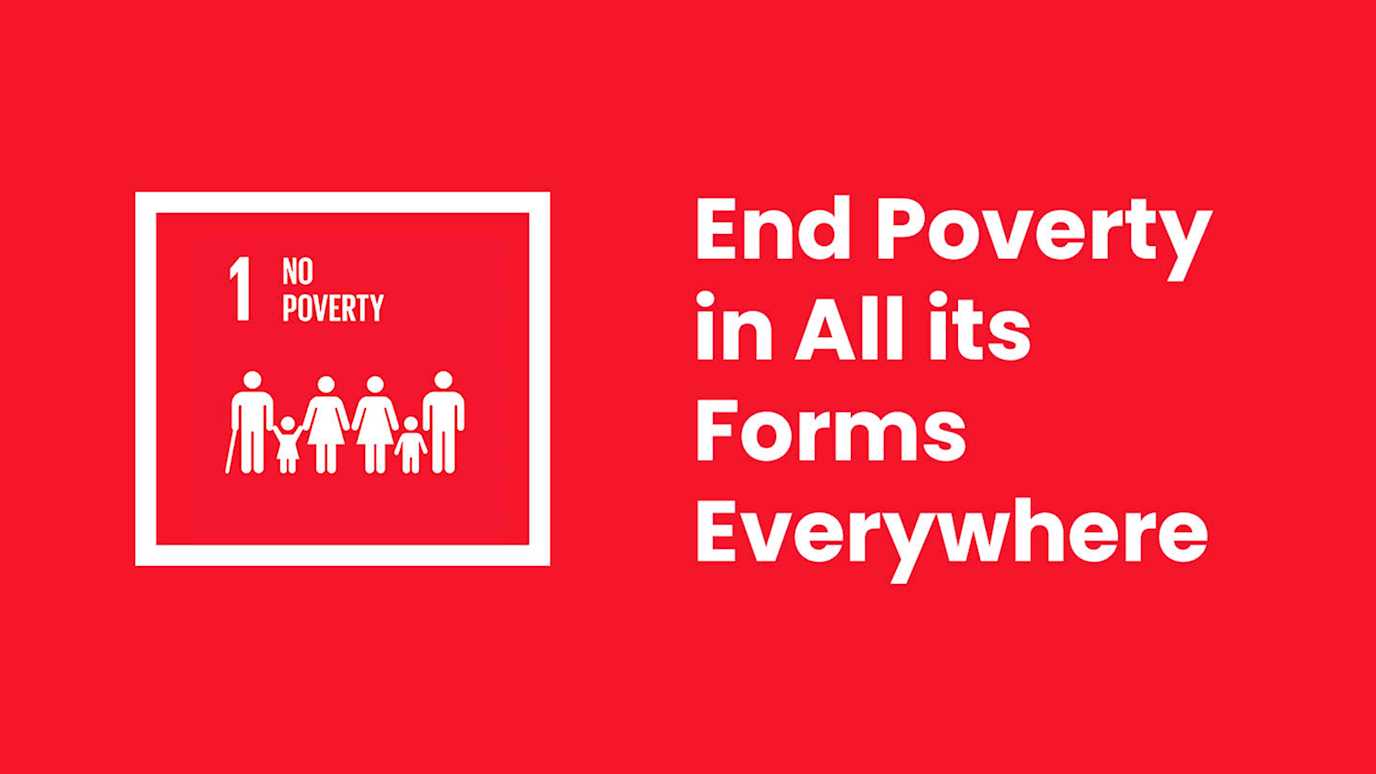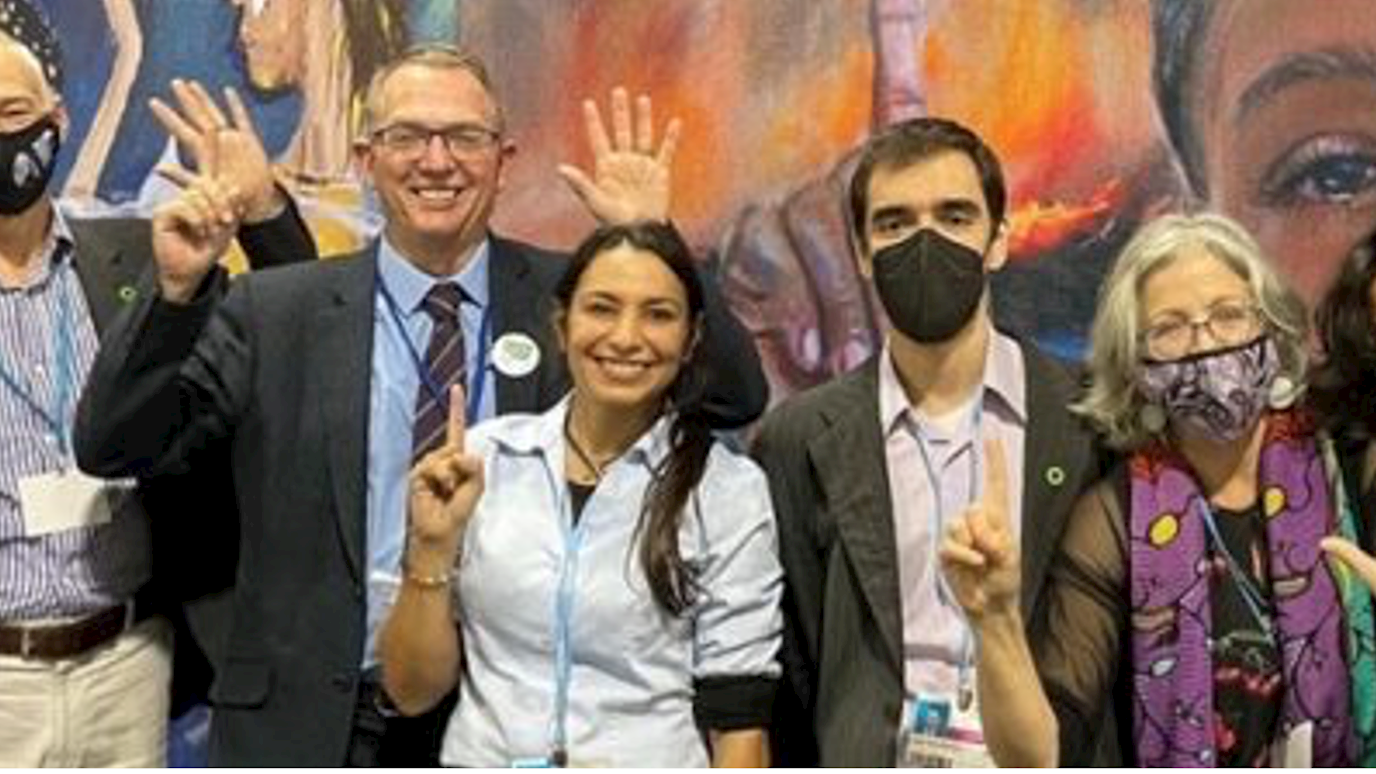The first UN Sustainable Development Goal (SDG) is to ‘End Poverty in All its Forms Everywhere’. This highly ambitious goal reflects the need to seriously address the devastating impact poverty has on millions of people across the world, writes Anna Gupta.
SDG 1 focuses not just on people living in poverty, but also on the services people rely on and social policies that either increase or decrease poverty. The five ‘outcome targets’ of SDG 1 are: eradication of extreme poverty; reduction of all poverty by half; implementation of social protection systems; ensuring equal rights to ownership, basic services, technology and economic resources; and the building of resilience to environmental, economic and social disasters.

COVID-19 has slowed economic growth, increased unemployment, and raised poverty and hunger. The pandemic has exposed and intensified inequalities within and across societies. It has led to the first rise in extreme poverty in a generation, with an estimated additional 119-124 million people having been pushed back into extreme poverty in 2020. The poorest and most vulnerable people have a greater risk of becoming infected by the virus and bear the brunt of the economic fallout. Vast inequities exist in vaccine distribution across the globe: as of 17 June 2021, around 68 vaccines were administered for every 100 people in Europe and Northern America compared with fewer than 2 in sub-Saharan Africa. The pandemic forced governments worldwide to implement social protections, although it is estimated that 4 billion people were not covered by social protection, and many of the measures were only short-term.
Poverty in Britain today
In the United Kingdom prior to the pandemic there was increasing concern about the hardships faced by many individuals and families due to ‘austerity’ policies. In 2018 the UN Special Rapporteur on extreme poverty and human rights produced a damning report on the UK. He described the level of child poverty in twenty-first-century Britain as being ‘not just a disgrace, but a social calamity and an economic disaster, all rolled into one’. Michael Marmot’s work on health inequalities has repeatedly highlighted the social gradient in relation to factors such as life expectancy – the more deprived the area the shorter the life expectancy, with this gradient having become steeper since 2010. His report ‘Build Back Fairer’ concludes that mortality from COVID-19 follows the social gradient and the causes of inequalities in COVID-19 are similar to the causes of inequalities in health more generally.
Whilst social protection was provided for many through furlough and other initiatives, such as the isolation pay support scheme, many individuals and families in the UK were not able to access this support, including more than 1.3 million people with no recourse to public funds. The support offered during the pandemic was time-limited and much has ceased. The £20 weekly increase to Universal Credit (a benefit for working-age people on low incomes) implemented early in the pandemic was withdrawn on 6 October 2021, despite stark warnings from a wide range of charities, other organisations and individuals about the harm this would cause, especially at a time when food and energy costs are rising. The Joseph Rowntree Foundation estimated that the cut to Universal Credit would lead to half a million people falling into poverty, including 200,000 children.
The experience of children and families
Much of my recent research and writing has been about poverty and child protection. There are very large inequities in the child protection system, with a similar social gradient in child welfare interventions, including whether children are able to live with their birth families or not, to health inequalities. My research is qualitative and participatory, seeking to understand the perspectives of families with lived experience of poverty and the child protection system. Much of my work has been with the international human rights based anti-poverty organisation, ATD Fourth World. A crucial aspect of their work is bringing together people with experience of poverty with academics, practitioners and policy makers in dialogue, providing invaluable insight into overcoming poverty from the bottom up.
Families in the social work project talked about the affective, as well as material consequences of being poor in Britain today, highlighting the shame, stigma and micro-aggressions experienced daily through the actions of politicians, the media, professionals, and wider society (us all). A larger international study by ATD Fourth World in collaboration with Oxford University and people with first-hand experience of poverty, Understanding Poverty in All its Forms, explored the multi-dimensional impact of poverty, identifying disempowering systems, structures and policies; stigma, blame and judgement; financial insecurity, financial exclusion and debt; lack of control over choices; damaged health and well-being; as well as unrecognised struggles, skills and contributions.
‘Poverty means being part of a system that leaves you waiting indefinitely in a state of fear and uncertainty’
‘Poverty kills dreams and cages the dreamers’
‘Poverty is not being able to smell the flowers because the stress of life gets in the way’

We need to listen to people in poverty
To conclude, COVID-19 has shone a light on the many inequalities scarring societies. As we look to the future, we need to build back fairer by tackling the ‘causes of the causes’ of so many of our social injustices, with addressing poverty being central. The pandemic has also demonstrated the necessity for inclusive social protections internationally, nationally and in local communities. In order to work towards achieving SDG1, statistical data is essential but so is giving voice and listening to the experiences of people in poverty; human stories of suffering and resistance that numbers don’t capture. As one family member from the ATD Fourth World project explains:
‘People who live in poverty know the solutions to their problems better than anyone else. Asking their opinions and giving them a voice is essential if we are to come to any true understanding of poverty and what can be done to eradicate it.’
Anna Gupta is Professor of Social Work in the Department of Social Work, School of Law and Social Sciences. Her research interests are in child and family welfare, including poverty and child protection policies and practices. She has co-authored a book Protecting Children: A Social Model and is currently involved in a ESRC funded project: Co-POWeR: Consortium on Practices Of Wellbeing and Resilience in Black, Asian and Minority Ethnic Families and Communities.

This blog is dedicated to the memory of Moraene Roberts, an ATD Fourth World activist and a truly extraordinary woman. We were very fortunate that for many years she taught our social work students at Royal Holloway. This photograph is of her last visit to Senate House in 2019.


























